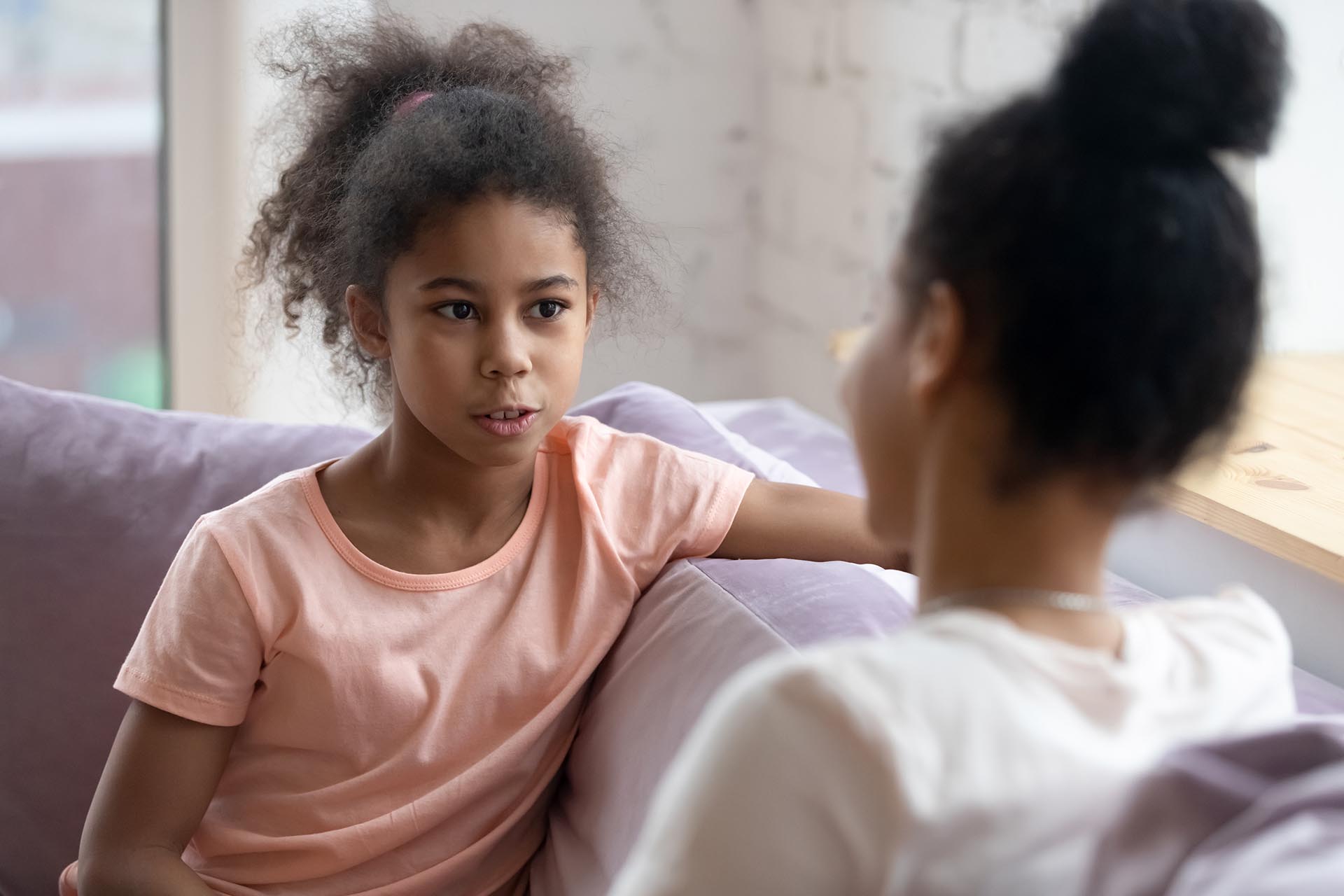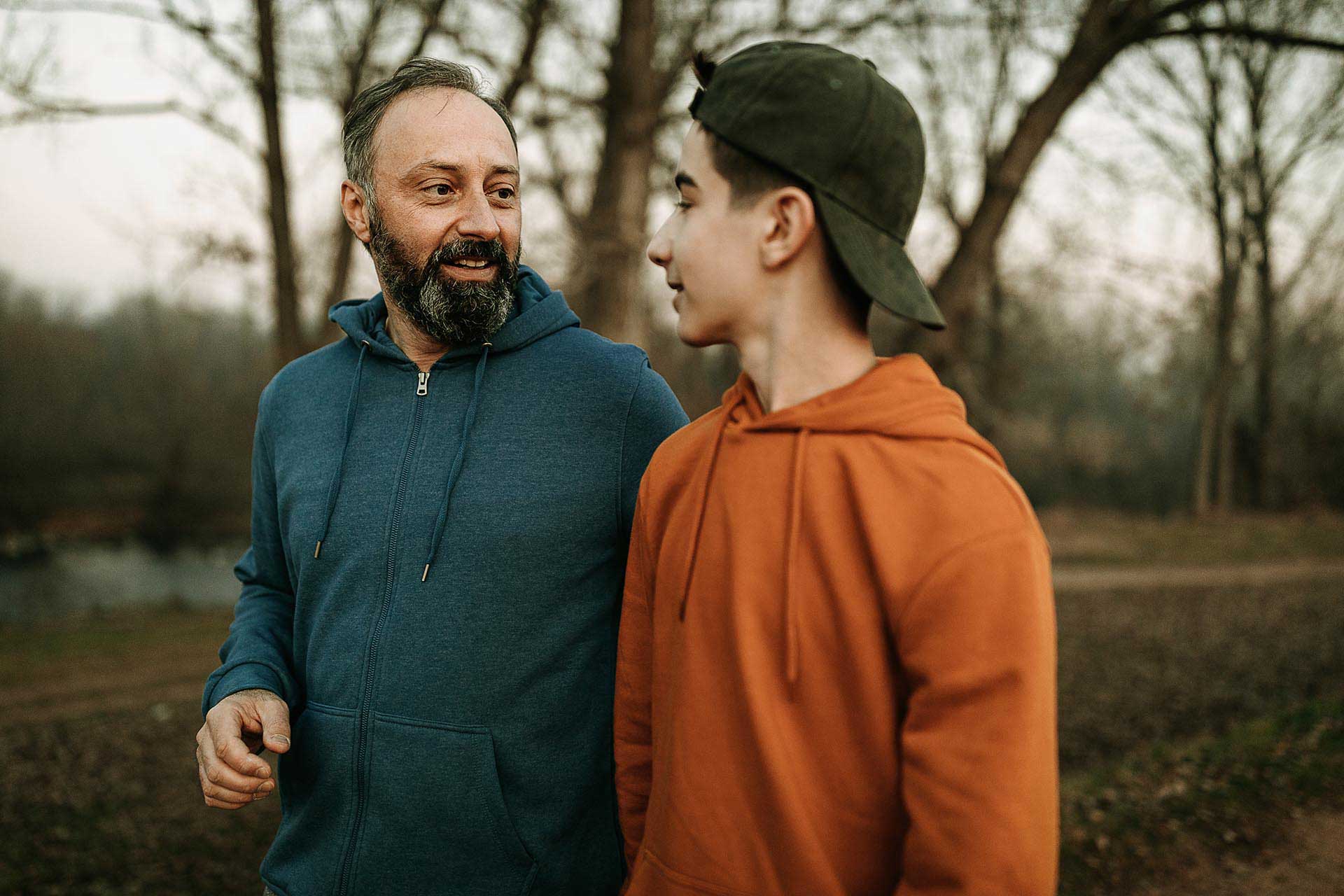If you catch them in the act, it’s good to respond right there and then. One approach is to ‘play dumb’. Ask them what the word means, and after they explain it, ask them why they think it’s funny or insulting. Normally we wouldn’t advise doing anything that might shame a young person, but being forced to spell out the logic of our prejudices in front of others can help to highlight how misguided, offensive or silly sounding they are. Often children don’t actually believe what they’re saying with these sorts of things; they’re just parroting what they’ve heard in the playground and are trying to impress their peers (or get a rise out of you!). Sometimes they use offensive words they don’t even understand and when that happens they need to be challenged and taught that it’s not acceptable.
It’s also a good idea to have a separate one-on-one conversation with your child. If they made the comment in the presence of others, it’s best to wait until you can talk to them alone. Rather than scolding them, try to appeal to their own moral compass. Ask them where they learned the word and what they think is wrong with two people of the same sex loving one another. Ask them how they would feel if someone made fun of them for something they had no choice over, like their eye colour or the shape of their nose. You could also bring up any LGBTQ+ friends or family members and ask if they’d like to hear other people making comments about them in this way. Definitely explain to them why this sort of language is offensive and considered discrimination.
If they try to use the excuse that what they’re saying is ‘harmless’ or that it ‘means something different’, talk about how even if they believe that’s the case, they can’t remove the original meaning from the word and that using that language still perpetuates the same prejudice and harm. Explain to them that people interpret meanings from words and while you can’t control how a person takes meaning from what you say, there are certain words and expressions that have definite in-build meanings, like ‘apple’. Explain how this sort of language helps to normalise intolerance and hate towards LGBTQ+ people – which creates acceptance for more harmful acts. You could mention how LGBTQ+ young people in general are bullied more at school, and often suffer from worse mental health than their peers, and ask your child if they want to contribute to that. Hopefully, by appealing to your child’s sense of justice, they’ll decide for themselves not to use this language in the future.










